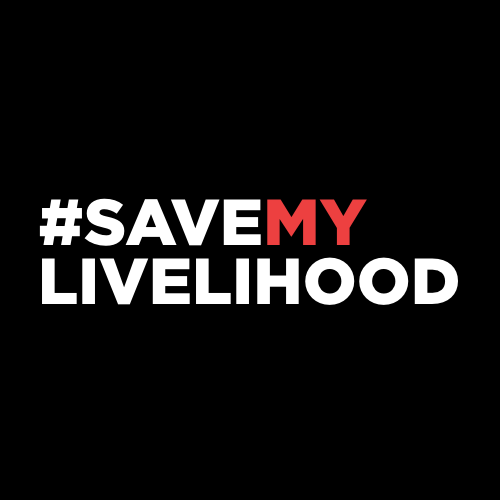We recognise the incredibly tough task that our government has in terms of leading the nation through this unprecedented global pandemic. We appreciate the delicate balancing act that you – as our country’s leaders – are facing each and every day in trying to save lives. We want to say it loudly and clearly and as an industry: We are here to help.
And as a champion of responsible alcohol consumption, we are convinced that there is a sustainable way to mitigate alcohol-related trauma admissions in hospitals, while also ensuring our healthcare system can prioritise Covid-19 patients. We firmly believe this can be achieved without crushing one of the biggest contributors to the South African economy and the incomes on which millions of our citizens depend.
We don’t believe it has to be a choice between our health or our economy; between lives and livelihoods; between wellness and wellbeing. There is a middle ground and we believe it can be built in partnership with our government. We owe it to our people and to our future economy to keep the wheels of this industry turning, now more than ever.
The alcohol sector is not just a law-abiding corporate citizen, it is a significant taxpayer that is responsible for approximately one million people’s livelihoods across the value chain.
Besides playing a role in unification at a societal level – through responsible drinking – beer, wine and spirits go much, much further than this. The industry has touchpoints across every aspect of South African business – from the mines that keep the glass manufacturers producing bottles, to the majority women-owned taverns that contribute towards the social fabric of our communities. Each of these businesses play a role in shaping our industry, as well as our country. And each of them is also responsible for other livelihoods.
The suspension of alcohol sales has resulted in severe economic effects. Despite participating in the ultimate goal of flattening the infection curve by suspending sales for a period of some two months during the first lockdown period, we are being hammered on a daily basis in ways that could change the landscape of South Africa’s society severely over the long term.
Long-standing bonds
This extended suspension of alcohol sales came without warning. It ignores the long-standing bonds between our sector and government. I believe we are one of four countries in the world, together with eSwatini, Lesotho and Sri Lanka, that has retained a complete prohibition on alcohol sales and, as an industry, we are concerned about the free-for-all illegal alcohol sales that will feed a few illicit criminals at the cost of many people’s livelihoods and income to the state, needless to say, the negative health impact it will have on people. The complete disregard for the fiscus contributions that our industry has made up until now is harmful, to say the least.
The decisions, we believe, have been based on unreliable and outdated data and we need to urgently correct current misconceptions.
Firstly, those advising government must urgently isolate and test the impacts of the reduction of people’s mobility on trauma presentations, as it is a major driver of both infections and hospital capacity availability worldwide. Having more cars on the road will contribute to trauma statistics – it is a simple fact. The UK, for example, has found a significant correlation between driving and trauma (A&E) admission figures.We agree that an urgent intervention is required to create increased hospital capacity for the treatment of Covid-19 as we reach the peak. There is no doubt that alcohol consumption must be taken into consideration as it plays an undeniable role in mapping out a solution.
However, there are other factors at play that cannot be ignored. It is evident that a knee-jerk assessment has been used to make this decision. It cannot result in building a sustainable future for our people. For example, a member of the Covid-19 Ministerial Advisory Committee told eNCA this week that the committee did not recommend the first ban on alcohol sales. Professor Francois Venter shared his thoughts, commenting that “the government keeps saying scientists are making these decisions, it is part of our frustrations, actually [but] it would be good to know who these scientists are and what their reasoning is…”Not all possible alternatives, we believe, were explored; nor were the wider impacts on lives and livelihoods adequately considered. An alternative solution that includes dropping the suspension on the sale, dispensing and distribution of alcohol is an urgent necessity.
We are ready to work alongside government to find workable solutions so that we do not set a dangerous precedent for future engagement.
The alcohol industry is inviting open dialogue and the views of our supporters and detractors alike. Join us at the table so that we can save the livelihoods of today’s entrepreneurs and build solid foundations for the post-Covid-19 economic recovery.
The alcohol industry includes tavern owners, restaurant owners, large liquor outlets as well as independent liquor stores, it includes multi-nationals, local craft brewers, boutique gin and whisky distillers, wine farms, small barley farms, it touches on logistics and transport – SMEs and truckdrivers, it relies on (and feeds) people in packaging and glass manufacturing, which in turn rely on mining.
It is a vast industry and the ‘off’ switch has been flipped on us all. It’s time to work out how to keep the lights on and save lives at the same time.
Patricia Pillay, Chief Executive Officer, Beer Association of South Africa. Views expressed are her own.
This article first appeared on www.savemylivelihood.co.za.

